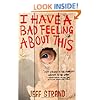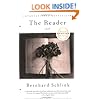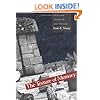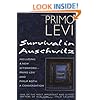


Flip to back
Flip to front

Maus II: A Survivor's Tale: And Here My Troubles Began Paperback – September 1, 1992
See all 9 formats and editions
Hide other formats and editions
| Amazon Price | New from | Used from |
|
Library Binding
"Please retry"
|
$18.46 | $15.99 |
|
Unknown Binding
"Please retry"
|
—
|
$10.25 | $9.78 |

$9.46
FREE Shipping on orders over $35.
In Stock.
Ships from and sold by Amazon.com.
Gift-wrap available.
NO_CONTENT_IN_FEATURE
Tell the Publisher!
I'd like to read this book on Kindle
Don't have a Kindle? Get your Kindle here, or download a FREE Kindle Reading App.
I'd like to read this book on Kindle
Don't have a Kindle? Get your Kindle here, or download a FREE Kindle Reading App.
Choose Your Own Autobiography
Step right into Neil Patrick Harris's shoes in an exciting, interactive autobiography that places the reader squarely in the driver's seat. Learn more
Step right into Neil Patrick Harris's shoes in an exciting, interactive autobiography that places the reader squarely in the driver's seat. Learn more
Product Details
Would you like to update product info or give feedback on images?.
|
Editorial Reviews
From Publishers Weekly
Spiegelman's startling comic about the Holocaust, which revolves around his survivor father's experiences, won a 1992 Pulitzer Prize.
Copyright 1992 Reed Business Information, Inc.
Copyright 1992 Reed Business Information, Inc.
From Library Journal
Spiegelman's Maus, A Survivor's Tale (Pantheon, 1987) was a breakthrough, a comic book that gained widespread mainstream attention. The primary story of that book and of this sequel is the experience of Spiegelman's father, Vladek, a Polish Jew who survived the concentration camps of Nazi Germany during World War II. This story is framed by Spiegelman's getting the story from Vladek, which is in turn framed by Spiegelman's working on the book after his father's death and suffering the attendant anxiety and guilt, the ambivalence over the success of the first volume, and the difficulties of his "funny-animal" metaphor. (In both books, he draws the char acters as anthropomorphic animals-- Jews are mice, Poles pigs, Germans cats, Americans dogs, and French frogs.) The interconnections and complex characterizations are engrossing, as are the vivid personal accounts of living in the camps. Maus and Maus . . . II are two of the most important works of comic art ever published. Highly recommended, espe cially for libraries with Holocaust collec tions. See also Harry Gordon's The Shadow of Death: The Holocaust in Lithuania , reviewed in this issue, p. 164; previewed in Prepub Alert, LJ 7/91.
- Keith R.A. DeCandido, "Library Journal"
Copyright 1991 Reed Business Information, Inc. --This text refers to an out of print or unavailable edition of this title.
- Keith R.A. DeCandido, "Library Journal"
Copyright 1991 Reed Business Information, Inc. --This text refers to an out of print or unavailable edition of this title.
More About the Authors
Discover books, learn about writers, read author blogs, and more.Customer Reviews
Most Helpful Customer Reviews
24 of 26 people found the following review helpful
By
Daniel J. Hamlow
HALL OF FAME on March 28, 2003
Format: Paperback
Comment
Sending feedback...
The second part of Art Spiegelman's graphic novel Maus picks up where the first part left off. His father Vladek and mother Anja are captured and sent to Auschwitz. However, things aren't well at home. Mala, Vladek's second wife, exasparated at Vladek's tight-fisted controlling ways, leaves him. Artie and his wife Francoise rush over to help him out and during this time, Artie continues the interviews with his father and thence into Maus II.
The path of Artie understanding his father is smoother but at a cost. Following the success of Maus I, Spiegelman depicts a pile of dead Jewish bodies lying under the Artie's writing desk symbolizing how much the history his father has bled from that first volume has seeped into him. He is beginning to understand, but at the cost of emotionally and vicariously going through his father's experiences, for which he has sessions with Pavel, a Czech Jew psychiatrist and Holocaust survivor.
Artie gets more perspective during these sessions with Pavel. He tells Pavel that as a child, he constantly argued with his father, who said that anything he did was nothing compared to surviving Auschwitz. Pavel refers to the psychological concept of transference: "Maybe your father needed to show that he was always right--that he could always SURVIVE-because he felt GUILTY about surviving. ... and he took his guilt on YOU, where it was safe... on the REAL survivor." The argument stands to reason. Vladek survived the death of so much family and friends, as well as the millions he never knew.
We learn more of how Vladek survived Auschwitz. He teaches English to the Polish kapo, who expecting the Germans to lose the war, wants to get in good graces with the Americans.Read more ›
The path of Artie understanding his father is smoother but at a cost. Following the success of Maus I, Spiegelman depicts a pile of dead Jewish bodies lying under the Artie's writing desk symbolizing how much the history his father has bled from that first volume has seeped into him. He is beginning to understand, but at the cost of emotionally and vicariously going through his father's experiences, for which he has sessions with Pavel, a Czech Jew psychiatrist and Holocaust survivor.
Artie gets more perspective during these sessions with Pavel. He tells Pavel that as a child, he constantly argued with his father, who said that anything he did was nothing compared to surviving Auschwitz. Pavel refers to the psychological concept of transference: "Maybe your father needed to show that he was always right--that he could always SURVIVE-because he felt GUILTY about surviving. ... and he took his guilt on YOU, where it was safe... on the REAL survivor." The argument stands to reason. Vladek survived the death of so much family and friends, as well as the millions he never knew.
We learn more of how Vladek survived Auschwitz. He teaches English to the Polish kapo, who expecting the Germans to lose the war, wants to get in good graces with the Americans.Read more ›
Thank you for your feedback.
If this review is inappropriate, please let us know.
Sorry, we failed to record your vote. Please try again
19 of 21 people found the following review helpful
By
Gregory Baird
VINE VOICE on October 22, 2006
Format: Paperback
Comment
Sending feedback...
I was compelled to read this after finishing Art Spiegelman's astonishingly brilliant "Maus," a graphic novel retelling his father, Vladek's, experiences as a Jew in Poland during WWII. This sequel picks up right where the first left off, with Vladek's separation from wife, Anja, after arriving at Auschwitz. There Vladek must struggle to survive starvation and disease as well as the guards and the ovens, all while trying to get news of his wife from over in Auschwitz's second camp, Birkenau. His horrific time there is expertly rendered as Spiegelman manages to get across a complex range of emotions through his illustrations and words. Even after Auschwitz is abandoned and the Nazi soldiers go on the run, Vladek must still struggle to survive and make his way to safety. His journey home to his wife (from Auschwitz to an abandoned German landscape, through ruined cities and, finally, back to the now unrecognizable city he once called home) is utterly compelling, unforgettable stuff.
Equally compelling is the story of Vladek in later years that is mixed in with his history in both volumes of "Maus", after he has come to America with Anja, had another son (the first, Richieu, did not survive the war), lost Anja to suicide in 1968, remarried, developed a heart condition and a strained relationship with his surviving son, and begins telling his story to 'Artie', who is interested in adapting his father's tale into a comic book). In the WWII segments Spiegelman captures the horrors that took place during that tragic time, and in these father-son moments he explores how surviving an event like that leaves a mark on you forever, and can even pass on the burden of survivor's guilt to a new generation that wasn't even alive when the atrocities took place.Read more ›
Equally compelling is the story of Vladek in later years that is mixed in with his history in both volumes of "Maus", after he has come to America with Anja, had another son (the first, Richieu, did not survive the war), lost Anja to suicide in 1968, remarried, developed a heart condition and a strained relationship with his surviving son, and begins telling his story to 'Artie', who is interested in adapting his father's tale into a comic book). In the WWII segments Spiegelman captures the horrors that took place during that tragic time, and in these father-son moments he explores how surviving an event like that leaves a mark on you forever, and can even pass on the burden of survivor's guilt to a new generation that wasn't even alive when the atrocities took place.Read more ›
Thank you for your feedback.
If this review is inappropriate, please let us know.
Sorry, we failed to record your vote. Please try again
15 of 17 people found the following review helpful
By
Dave
on March 23, 2000
Format: Hardcover
Comment
Sending feedback...
Like Maus I this book can be read in an hour or so. Vladek's story of survival at Auschwitz is incredible. As a baby boomer I didn't live during this era. Having descended from Germans I have studied this period and have wondered how this could have happened. I'm not going to pretend to really understand what happened and what it was like. I have read other personal accounts of the holocaust but due, I guess, to the comic book format I found this much more accessible. We all should understand as much as we can about this horrific period of history. With just a small investment of time Maus I and II will provide to you a dramatic survivor's experience. We should never forget that this actually happened.
Thank you for your feedback.
If this review is inappropriate, please let us know.
Sorry, we failed to record your vote. Please try again
7 of 8 people found the following review helpful
By
Sherry A. Thomas
on December 16, 2009
Format: Paperback
1 Comment
Sending feedback...
Maus II is a great depiction of the Holocaust. It tells the second half of the story of Vladek Spiegelman and his journeys from Auschwitz to liberation through the Holocaust. The sequel gives more of an insight into the mind of Art Spiegelman as he records his father's stories. But part of what makes the Maus series so different from the rest of the books on the Holocaust is that these are not only the story but a comic book. In the graphic novel it's easy to pick up on the differences between father and son. It tells how the Holocaust and events surrounding the concentration camp shaped those that had to suffer through it all. Art realized the importance of his father, and learned to look through his father's seemingly selfish actions to understand that he was just trying to teach Art all he had to learn through his experiences. Vladek loves Art because through the Holocaust he came to realize that family is really the only thing a person has. He lost his money, he lost his job, and all he had that got him through the days was the thought of seeing Anja again. The thoughts of survival and perseverance were his only thoughts because of the truly horrific experiences he had to go through. In this tale of Art Spiegelman's survival, it gives readers an inside look at the Auschwitz death camp, the death marches, and life after liberation. Through this novel it is also shown the lasting effects the Holocaust had on the men and women who survived, the continual trouble it caused them. It was something they would never recover from, it affected their future children even. It is a tale of triumph, self discovery, and family.
Thank you for your feedback.
If this review is inappropriate, please let us know.
Sorry, we failed to record your vote. Please try again












